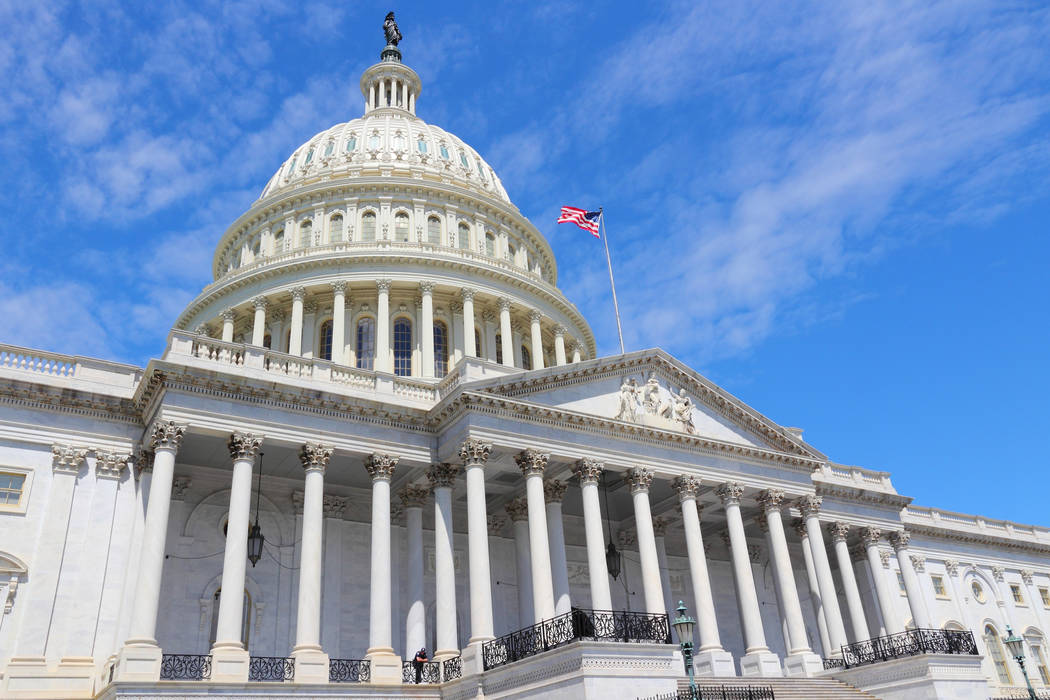GOP dangles CHIP reauthorization in new bid to avoid shutdown
WASHINGTON — Republicans are offering a long-term reauthorization of the Children’s Health Insurance Program, which covers about 40,000 children in Nevada, as an incentive to get Democrats to vote for a short-term spending bill and avert a government shutdown Friday.
Congressional leaders dangled the new carrot as prospects for a deal to protect undocumented immigrants who were brought here illegally as children dimmed Wednesday. But Democrats, who favor the CHIP reauthorization, also want a deal to replace the Deferred Action for Childhood Arrivals (DACA) program and weren’t taking the bait.
Senate Majority Leader Mitch McConnell, R-Ky., said Congress has at least until March to agree on a legislative DACA fix. For now, he said, Congress “needs to keep the government running.”
But Minority Leader Chuck Schumer, D-N.Y., said failure by Republicans to give ground on DACA could force Democrats to oppose a short-term spending measure, even one that would reauthorize CHIP.
“We will do everything we can to avoid a shutdown,” Schumer said. “If, God forbid, there is a shutdown, it will fall on the majority leader’s shoulders and the president’s shoulders.”
Immigration talks continue
The two programs and fates of roughly 9 million children and 800,000 young undocumented immigrants are hitched to a broader debate over immigration.
President Donald Trump last week torpedoed an agreement to protect DACA participants that would have cleared the way for passage of a spending bill to keep the federal government operating. Since then, he has blamed Democrats for failing to negotiate on his requests for a border wall, an end to a diversity visa lottery and a reduction in so-called chain migration.
Democrats in turn dug in their heels and have so far insisted that a DACA replacement be part of any compromise to avert a shutdown at midnight Friday.
Senate Majority Whip John Cornyn, R-Texas, said immigration talks on DACA and border security would continue Thursday as House and Senate leaders try to hammer out a short-term spending agreement that can pass Congress and Trump will sign into law.
The six-year CHIP reauthorization offered by Republicans could help pave the way for a solution. CHIP expired Sept. 30, 2017, and states have been clamoring for federal action as money has been spent.
Nevada CHIP funding drying up
Nevada received notice from the Centers of Medicare and Medicaid Services in December that the state would receive an additional $5.7 million in a redistribution of unspent funds to keep state programs operating until February.
Gov. Brian Sandoval, a Republican, and the entire Nevada congressional delegation have called on House and Senate leaders to act on CHIP reauthorization.
CHIP was created 20 years ago to provide health coverage for vulnerable children in families that were too poor to afford private coverage, but still didn’t quality for Medicaid.
Since CHIP was created, the percentage of eligible children without coverage nationwide has fallen from 22.8 percent in 1997 to 6.7 percent in 2015, according to the Medicaid and CHIP Payment and Access Commission, known as MACPAC.
In Nevada, the program pays for health services for 27,515 children on Nevada Check Up, the state’s version of the CHIP, and 13,076 children on Medicaid, for a total of 40,591 children.
CHIP program eligibility expanded under the Affordable Care Act in 2010, which also increased matching federal funds by 23 percent.
If extended, Nevada is projected to receive and spend $78.6 million in federal CHIP funding in 2018, according to MACPAC.
Contact Gary Martin at 202-662-7390 or gmartin@reviewjournal.com. Follow @garymartindc on Twitter.
What is CHIP?
CHIP is smaller than Medicaid, both in terms of covered individuals (8.4 million vs. an estimated 81 million in FY 2015) and total spending ($13.7 billion vs. $552 billion in FY 2015, including both federal and state dollars).
As with Medicaid, CHIP is administered by states within federal rules, and states receive federal matching funds for program spending.
Source: Medicaid and CHIP Payment and Access Commission

















